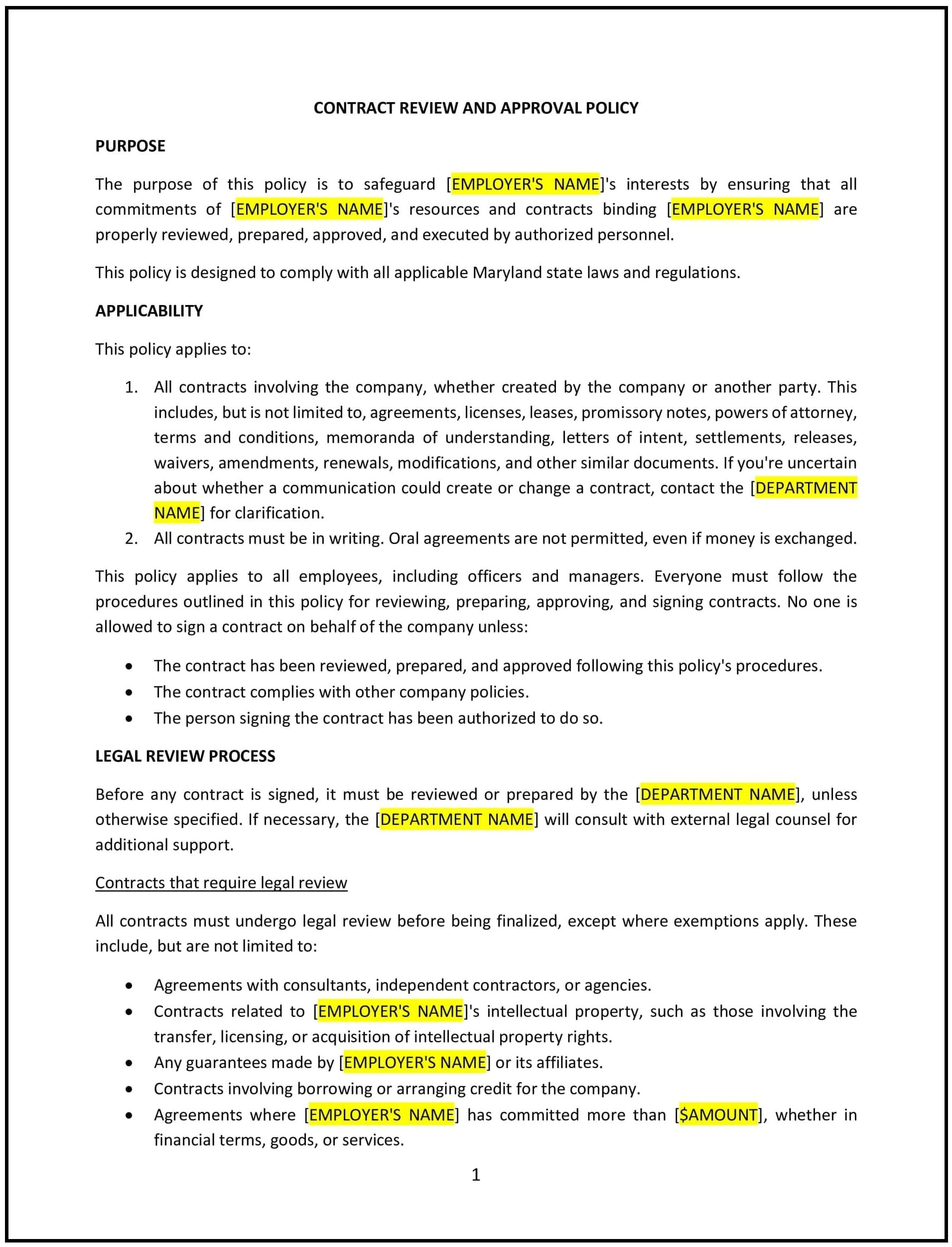Contract review and approval policy (Maryland): Free template
Got contracts to review? While you're here for policies, let Cobrief make contract review effortless—start your free review now.

Customize this template for free
Contract review and approval policy (Maryland)
This contract review and approval policy is designed to help Maryland businesses establish a clear process for reviewing, negotiating, and approving contracts. It provides guidelines to minimize risks, promote transparency, and ensure that agreements align with the business’s objectives and legal responsibilities.
By adopting this policy, Maryland businesses can streamline contract management, mitigate risks, and foster accountability in their contractual dealings.
How to use this contract review and approval policy (Maryland)
- Define contract types: Specify the types of contracts covered by the policy, such as vendor agreements, service contracts, or employment contracts.
- Assign review responsibilities: Identify who is responsible for reviewing contracts, such as legal teams, managers, or external advisors.
- Establish approval workflows: Outline the steps required for contract approval, including necessary sign-offs and delegation of authority.
- Set review timelines: Provide clear deadlines for reviewing and approving contracts to prevent delays.
- Require risk assessment: Mandate the identification and evaluation of potential risks, such as unfavorable terms or regulatory issues.
- Implement documentation standards: Specify how contracts should be documented, stored, and maintained for future reference.
- Address Maryland-specific requirements: Incorporate any state-specific laws or regulations that affect contract terms or practices.
Benefits of using this contract review and approval policy (Maryland)
Implementing this policy provides Maryland businesses with several advantages:
- Reduces risk exposure: Identifies potential issues in contracts before they are finalized.
- Promotes consistency: Establishes a structured process for reviewing and approving contracts.
- Enhances accountability: Clearly defines roles and responsibilities for contract management.
- Saves time: Streamlines contract workflows to avoid unnecessary delays.
- Supports legal alignment: Reflects Maryland-specific contractual requirements and best practices.
Tips for using this contract review and approval policy (Maryland)
- Train employees: Ensure team members involved in contract management understand their roles and the policy requirements.
- Use technology: Implement contract management tools to track approvals, deadlines, and document storage.
- Monitor compliance: Regularly audit the contract review process to identify gaps or inefficiencies.
- Encourage collaboration: Foster communication between legal, finance, and other departments to streamline reviews.
- Stay informed: Update the policy to reflect changes in Maryland contract laws or industry standards.